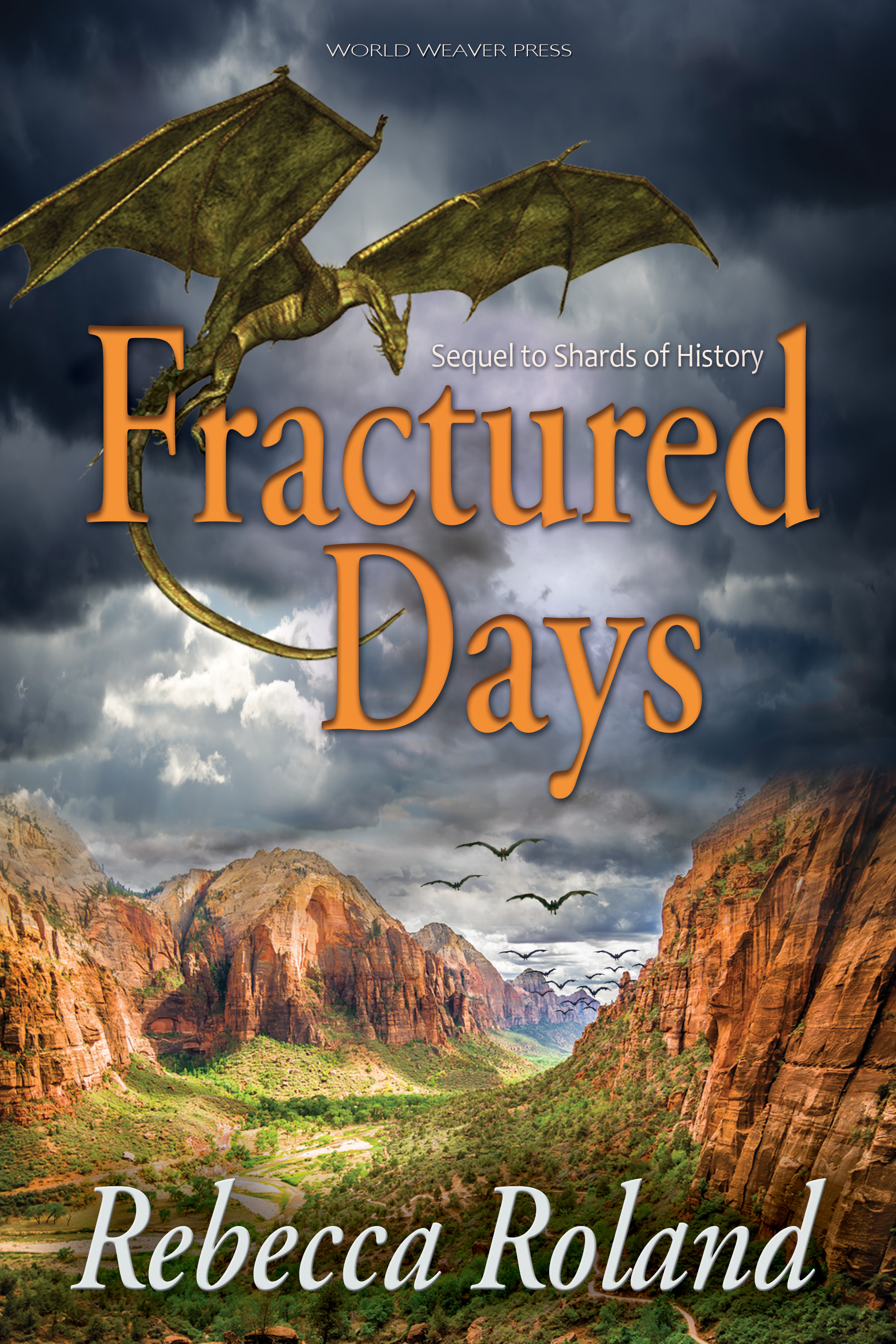Today we have an interview with Rebecca Roland, whose new novel Fractured Days has just been released.
Malia returns home the hero of a war she can’t remember. The valley burning under the Maddion’s invasion, the fate of her late husband, the way she resolved the long-time distrust between the Taakwa people and the wolfish, winged Jegudun creatures–all of it has been erased from her memory. Malia hopes to resume training as her village’s next clan mother, but when the symbiotic magic that she and the Jeguduns used to repair the valley’s protective barrier starts to consume more and more of her mind, she’s faced with the threat of losing herself completely.
A powerful being known as “the changer” might hold the solution to her vanishing memories. But the Maddion’s new leader, Muvumo, also seeks the changer, hoping the being will cure them of the mysterious illness killing off his people. Meanwhile, Muvumo’s bride hopes the changer can bring about a new era, one in which she and the other Maddion women no longer need to hold onto their greatest secret.
Me: Can you describe your writing for someone who is unfamiliar with it?
Rebecca: My latest novel, Fractured Days, is fantasy with a wee bit of science fiction thrown into the mix. I tend to write fantasy most of the time, and sometimes venture into science fiction and horror. I enjoy writing fantasy the most, though, because I can play around with different settings, social constructs, organisms, and magic.
Me: Would you want to live in the world of your book? Why or why not?
Rebecca: I think I could be happy living in the world of my book, so long as things were peaceful. My main character, Malia, lives in a pre-technological world that looks an awful lot like the American Southwest. Although there’s no tech to make life easier, tasks are shared among many people and are therefore easier. Plus, she’s friends with the Jeguduns, who are small, winged, humanoid creatures that live in the cliffs surrounding her valley home. They’re intelligent, they have a good sense of humor, and they’re loyal. Plus, they know about chocolate.
Me: Why did you write this story? What is compelling about it for you?
Rebecca: Fractured Days is the sequel to my novel Shards of History. I wanted to write this book because I kept thinking about my characters and what they were up to, and because I wanted to explore how people recover after war, how people cope with issues with failing memory, and how people push for social change.
Me: What surprised you while writing it?
Rebecca: There was one relationship that sort of popped up and blossomed while I was writing, and I wasn’t expecting it at all. I feel like I’m not very good at writing romance, so I figured my subconscious was giving me a gift with this couple and just went along with it.
Me: How will reading it make people feel?
Rebecca: The book includes drama, adventure, magic, and romance. I’m hoping that readers not only find it a page-turner, but that it also gives provokes some thought about social inequality.
Me: Was there anything you did deliberately while crafting this novel (pacing, language, symbolism…)? Why?
Rebecca: One of the things I had to describe was how Malia’s memory was being eroded by the magic she had used in the previous story. That’s challenging to convey, so I described it as a fog rolling in, and slowly taking over more mental territory, so to speak. I find fogs and mists creepy, so a magic fog slowly consuming one’s mind seemed disturbing.
Find Fractured Days at World Weaver Press.
Rebecca is the author of the Shards of History series, The Necromancer’s Inheritance series, and The King of Ash and Bones, and Other Stories. Her short fiction has appeared in publications such as Nature, Fantastic Stories of the Imagination, Stupefying Stories, Plasma Frequency, and Every Day Fiction, and she is a graduate of the Odyssey Writing Workshop. You can find out more about her and her work at rebeccaroland.net or follow her on Twitter at @rebecca_roland.


Leave a Reply